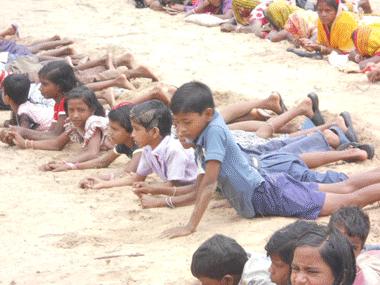Posco project: Amid betel vines, Orissa villages draw battle lines
Sunainaa Chadha
• June 20, 2011, 18:21:02 IST
Dhinkia and Govindpur, the Ground Zero of anti-Posco agitation, is in a state of war. But six-year olds are agitating in a serious development vs. environment battle, a recurring problem that is echoing across the country.
Advertisement
Advertisement
End of Photostory
)